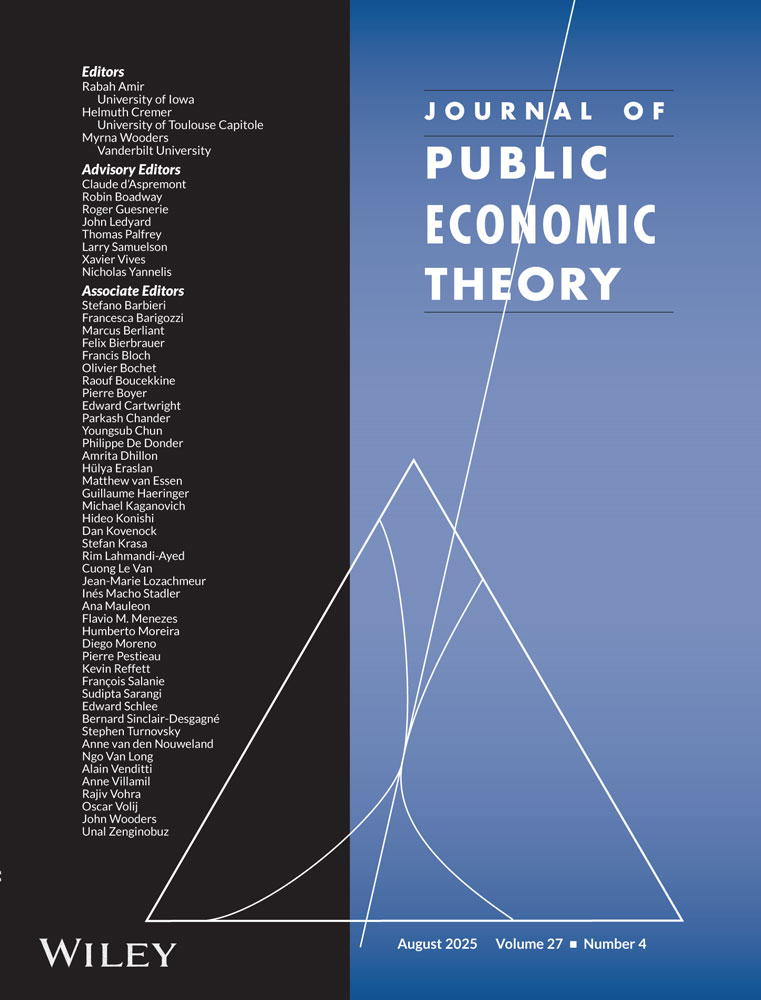Do the Poor Benefit From a Well Defined Tax Regime?
ABSTRACT
The uncertainty of the tax base is the central issue we consider in this paper. Top-income earners benefit from the wealth management industry's supply of sophisticated schemes, allowing them to adopt a gray-area avoidance/evasion position. This fact makes the assessment of the tax base uncertain, even for the tax authority. Our research questions are: when should sophisticated evasion be deterred? How should a utilitarian government set tax rates accordingly? Does the uncertainty of the tax base disadvantage less fortunate taxpayers? We show that risk aversion plays a role. It has to be quite low for the tax authority not to enforce compliance. When compliance is enforced, if the rich are concentrated enough at the top of the income distribution—a mild condition—we find that the tax rate applied on the lower income should be minimized, a parallel with Edgeworth's old utilitarian proposition on equal marginal sacrifice. Our analysis also suggests that government uncertainty about the tax base will actually benefit the poor, provided tax compliance is enforced.
Open Research
Data Availability Statement
Data sharing not applicable to this article as no datasets were generated or analysed during the current study.




